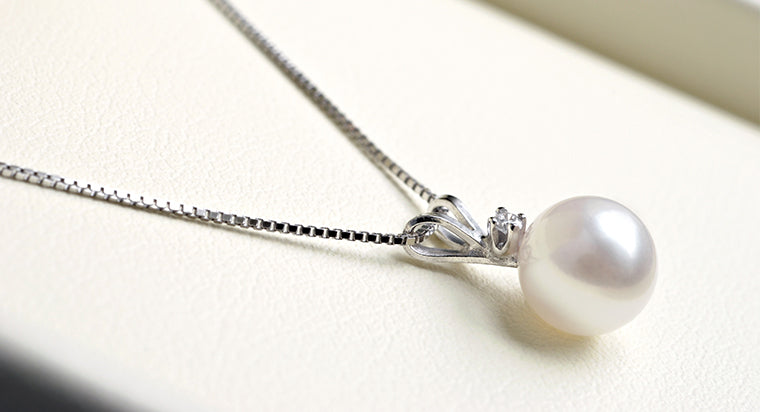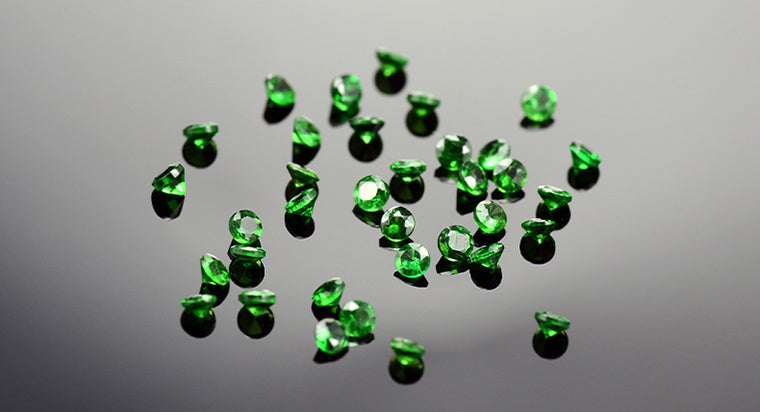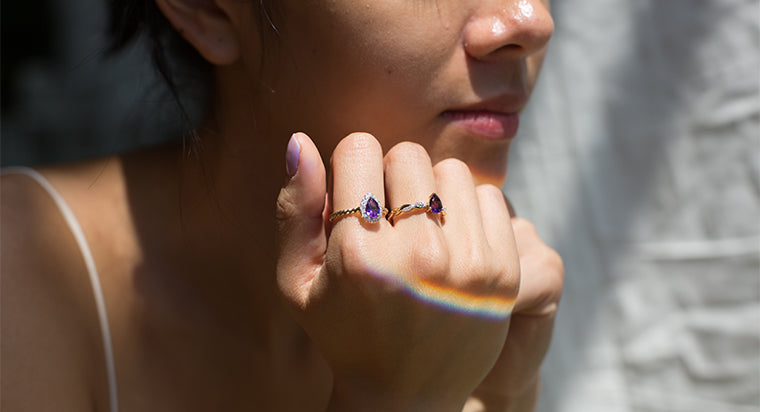Yellow Sapphire History

Yellow sapphires are a unique, popular gemstone with exquisite color. This sought-after gemstone continues to be popular for fine jewelry because of its durability, meaning, and varying shades of intense yellow. It’s said to bring the wearer luck, prosperity, and wisdom. Continue to learn more about yellow sapphires including its history, natural versus lab stones, and its meaning.
TABLE OF CONTENTS
The History of Yellow Sapphire
Sapphires, a variety of the mineral corundum, get their name from the Greek word Sappheiros and the Latin word Sapphirus, which translate to blue stone because the first sapphires were blue. The blue varieties of sapphires originated from the Kashmir region of India between the late 19th and early 20th centuries. The first yellow sapphires came from Sri Lanka, and mining in that area goes back at least 2000 years. Yellow sapphires are considered “fancy” sapphires because they’re a color other than blue. Sapphires come in all sorts of colors including pink, green and purple.
The Discovery of Yellow Sapphire
The discovery of yellow sapphires ties into its history. Mining on the island of Sri Lanka goes back at least 2000 years, and this continues to be a major source of yellow sapphires. Yellow sapphires are also commonly found in: Australia, Cambodia, India, Kashmir, Myanmar, Thailand and the U.S. (Montana).
Natural Yellow Sapphires vs. Lab Created Yellow Sapphires
Like other gemstones, natural yellow sapphires are formed within the earth’s crust and lab sapphires are grown in controlled environments. Natural stones take millions of years to form while lab-created sapphires can be created in a few days. In addition, lab-created yellow sapphires cost less per carat than natural sapphires because naturally-formed stones are rarer and more sought-after.
Today’s yellow sapphire colors can range from light pastel yellow to medium yellow to a strong orangey-yellow. Many yellow sapphires resemble yellow diamonds, which is another reason for this stone’s popularity. You’ll see stones ranging from bright canary yellow to greenish yellow, to everything in between. Most customers prefer a yellow sapphire color that is a medium, vibrant canary yellow; however, customers in other countries prefer a deep, orangish yellow (close to a whisky color).
You might be curious about what causes the yellow color in these “fancy” sapphires. The trace element of iron is the most common cause of its color. Similarly, increased iron concentrations can increase color saturation. Yellow sapphires can also be colored naturally by low-level radiation within the earth or by lab-induced irradiation. It’s important to note that gemstones that obtain their color through irradiation can fade with exposure to heat and light. Heat treatments have vastly increased the supply of yellow sapphires on the market today. Unheated yellow sapphires with strong saturation remain quite rare.
Another unique attribute of yellow sapphires is their inclusions. Generally, yellow sapphires have fewer inclusions than other sapphire colors. The trace element titanium may cause an undesirable green cast in yellow sapphires, which makes the most valuable gemstone those that are relatively titanium-free.
Significance Throughout History
In addition to being beautiful, yellow sapphires (also called Pukhraj stone) carry meaning. Some believe the stone brings the wearer luck, wisdom, happiness, and prosperity. Some also believe yellow sapphires represent Jupiter in Vedic astrology. Vedic astrology is a system of knowledge in India that is based on the belief that the position of stars and planets impact our lives. Jupiter is the planet of wisdom, knowledge, power, riches, and wealth.
What Yellow Sapphire Means Today
People believe that yellow sapphires carry meaning and can impact your life. The stunning stones attract luck, wisdom, wealth, and knowledge. In addition, some believe that yellow sapphires:
- Allows the wearer to make better decisions and sharpen his/her intelligence.
- Provides increased self-assurance and mental balance.
- Accentuates the wearer’s ability to generate new ideas and achieve goals.
- Supports emotional health.
- Instills joy and happiness.
- Allows the wearer to let go of concerns and procrastination.
- Try out a yellow sapphire and see how it impacts your life. If you have a September birthday, then you really need to try out this stone because sapphire is the September birthstone! You’ll commonly see blue sapphires for September birthstones, but if you want a stone as unique as you, consider a yellow sapphire for your birthstone jewelry.
FAQs
Is Yellow Sapphire a birthstone?
Which is the most valuable yellow sapphire color?
Is Yellow Sapphire a sturdy gem?
Can you wear yellow sapphire regularly?









